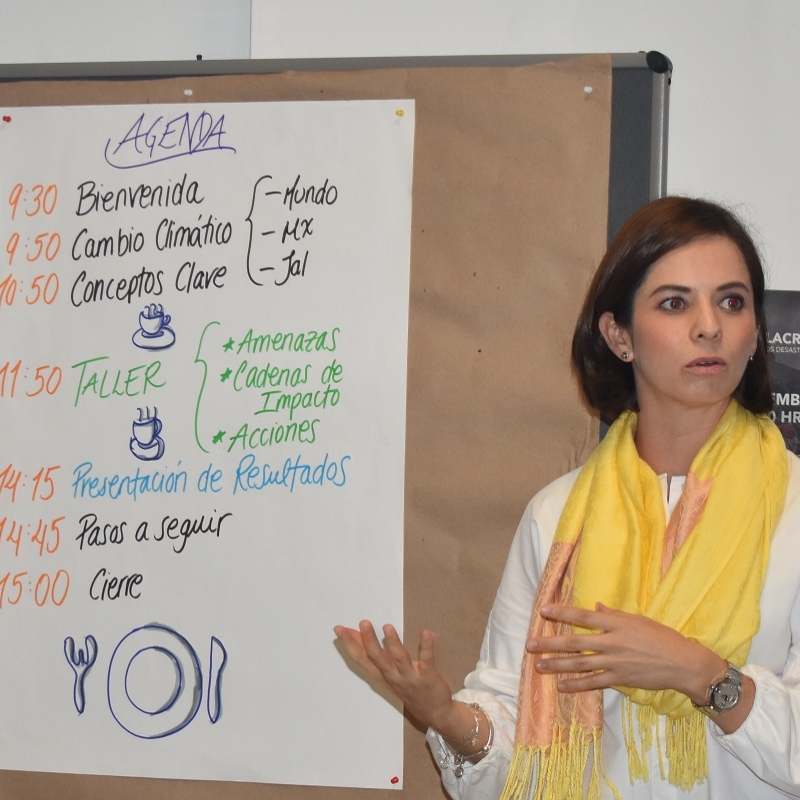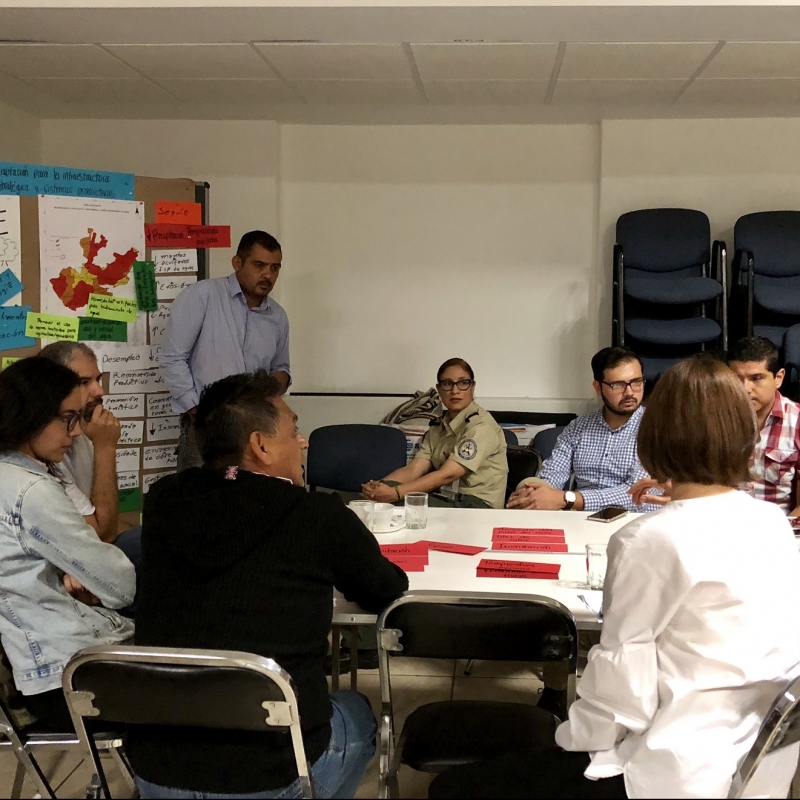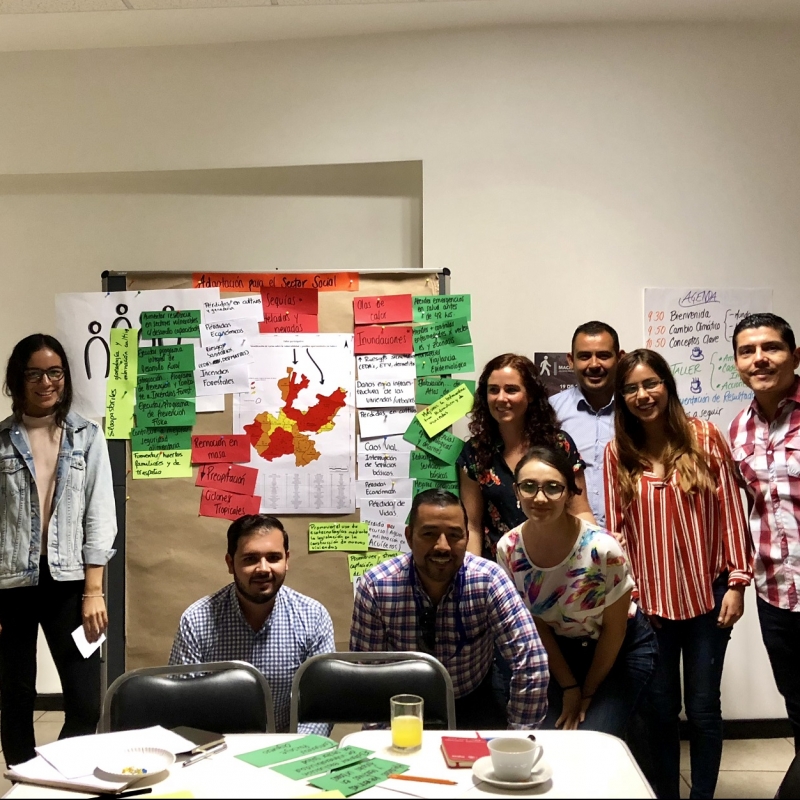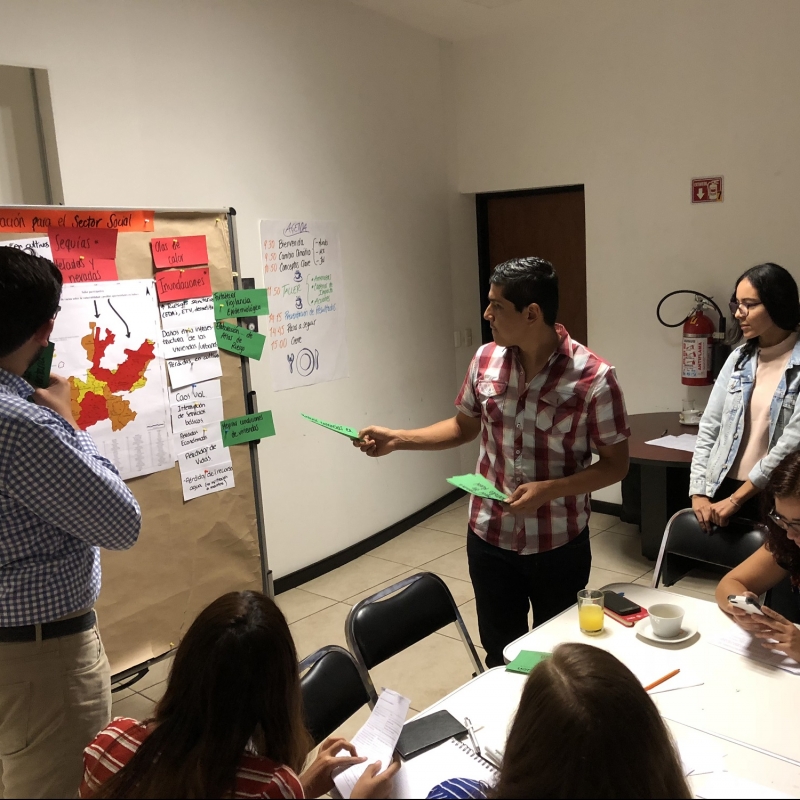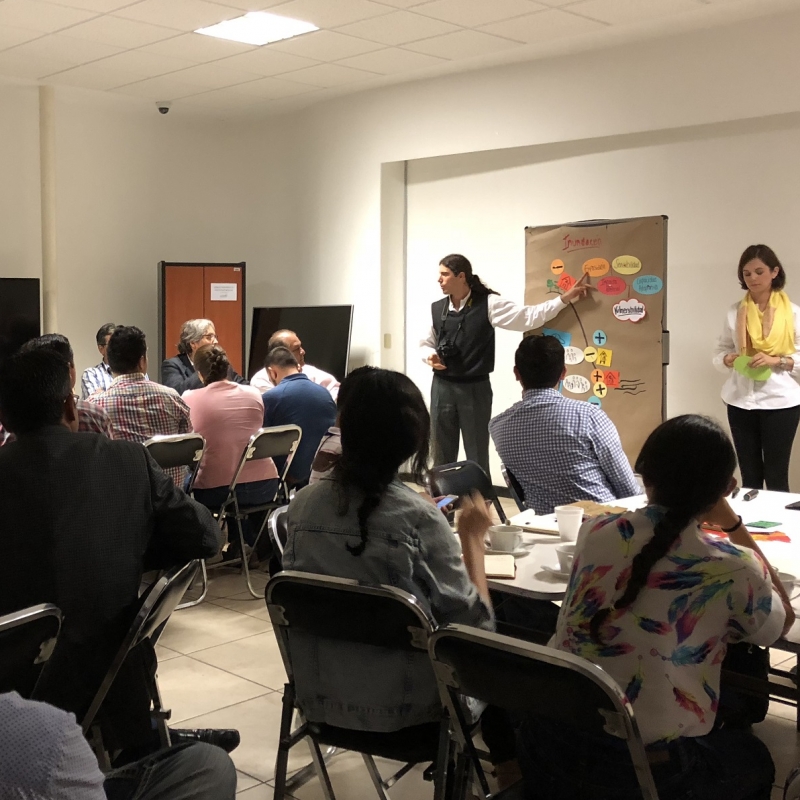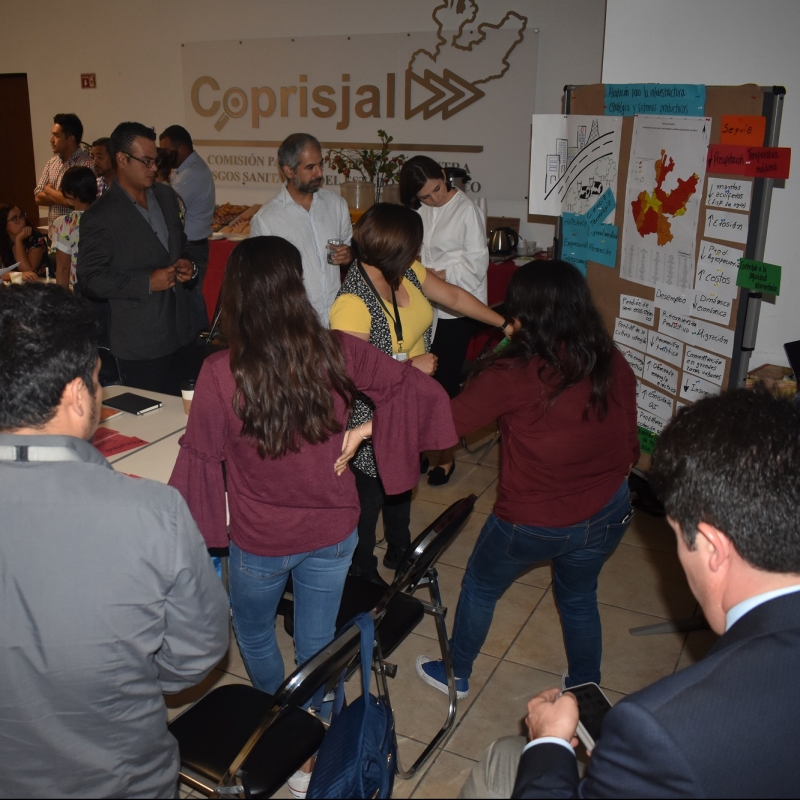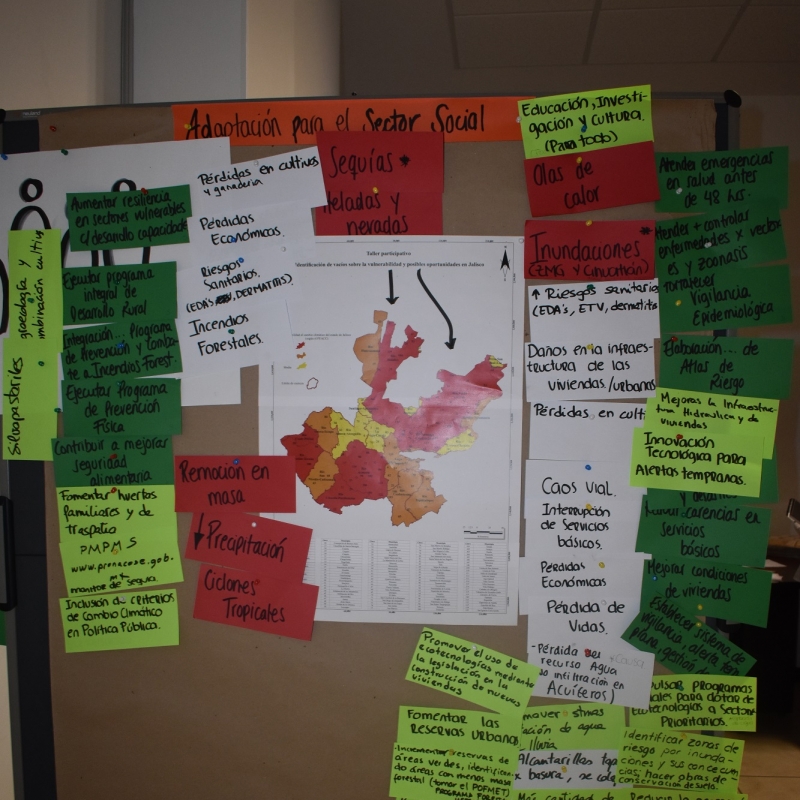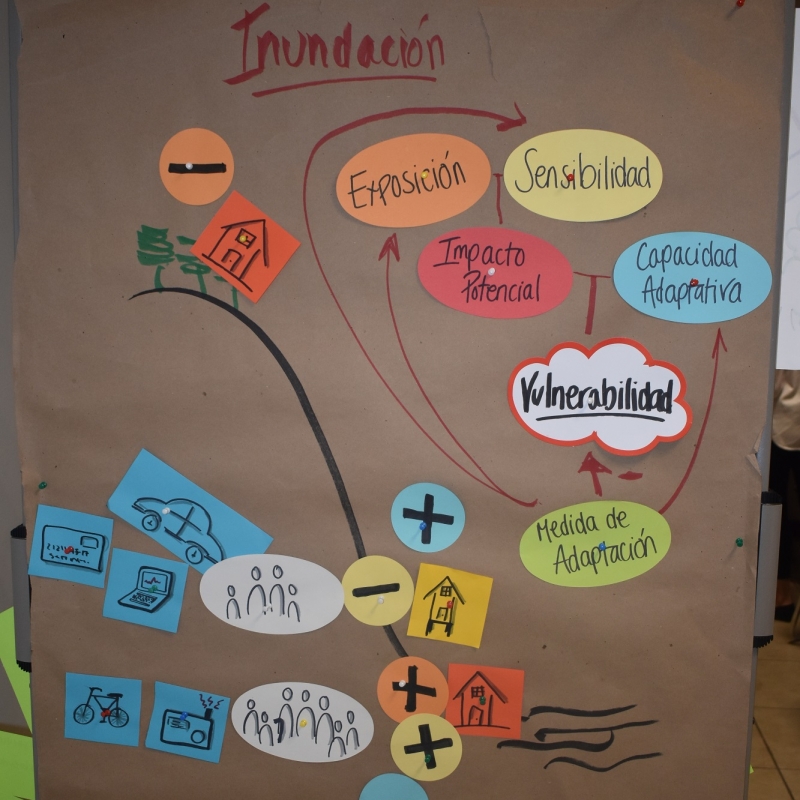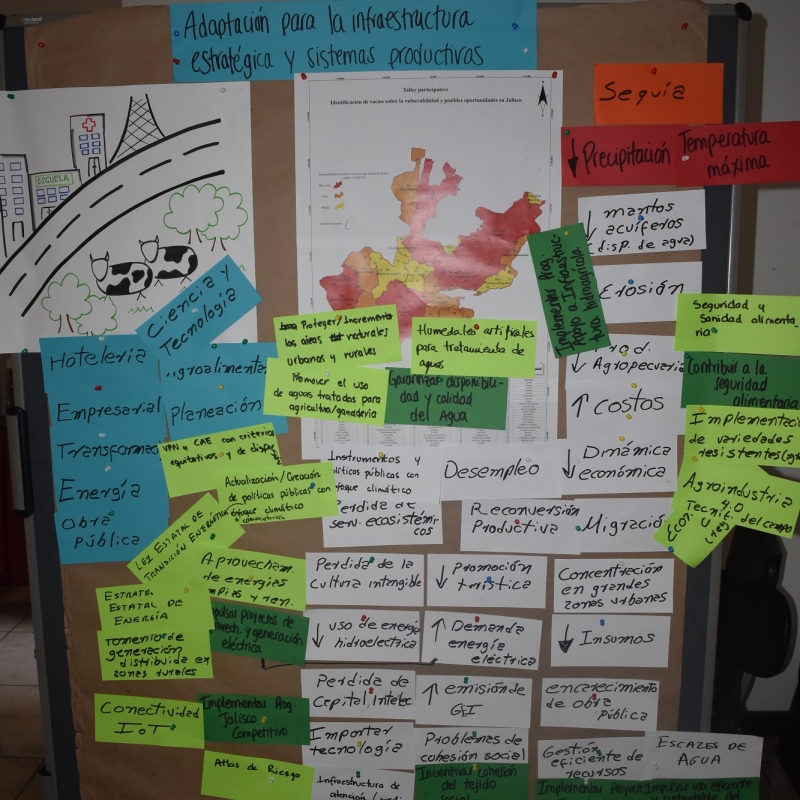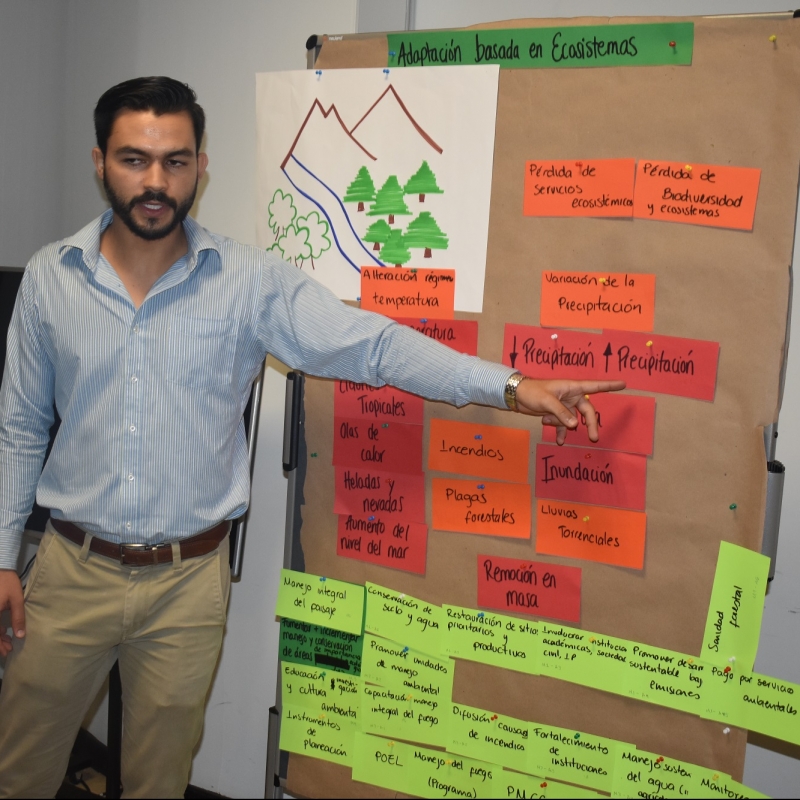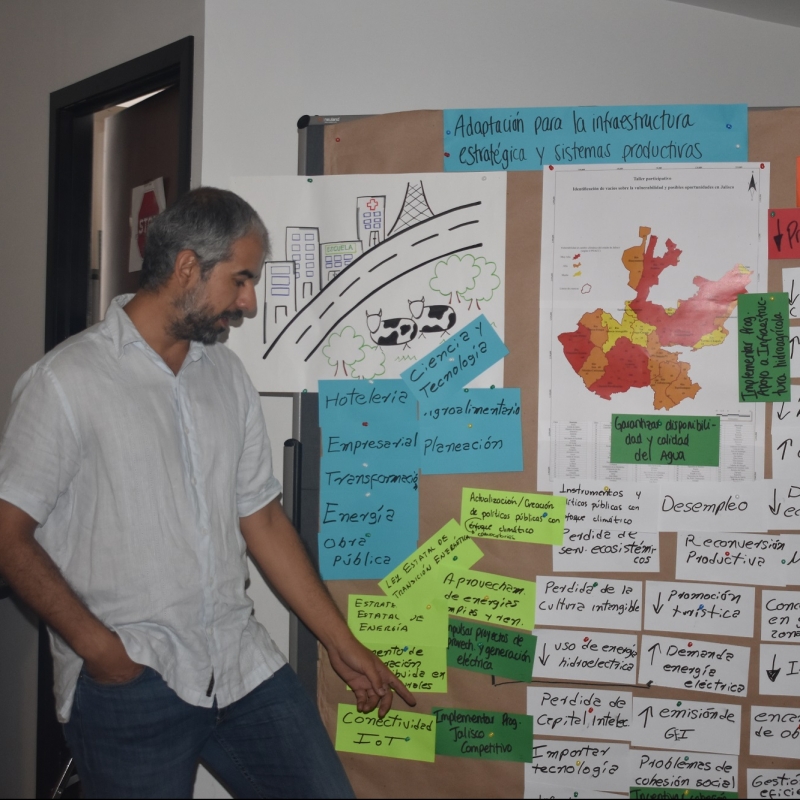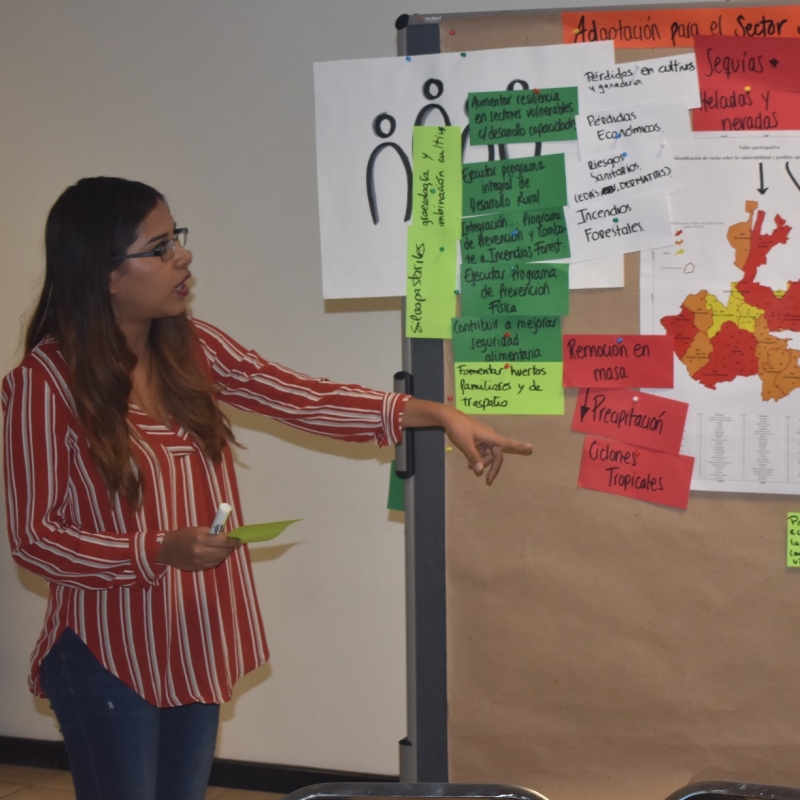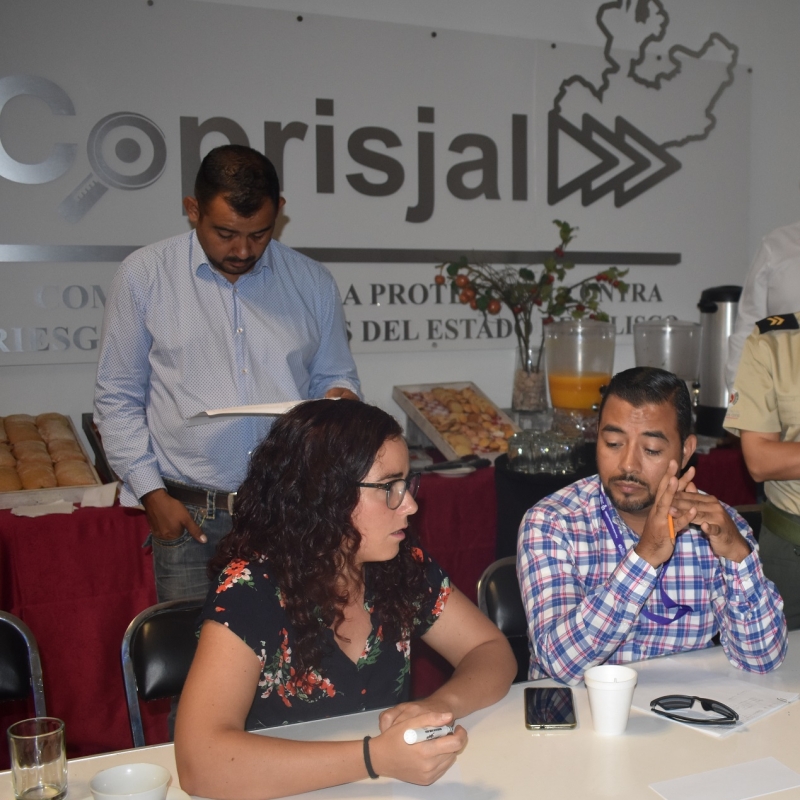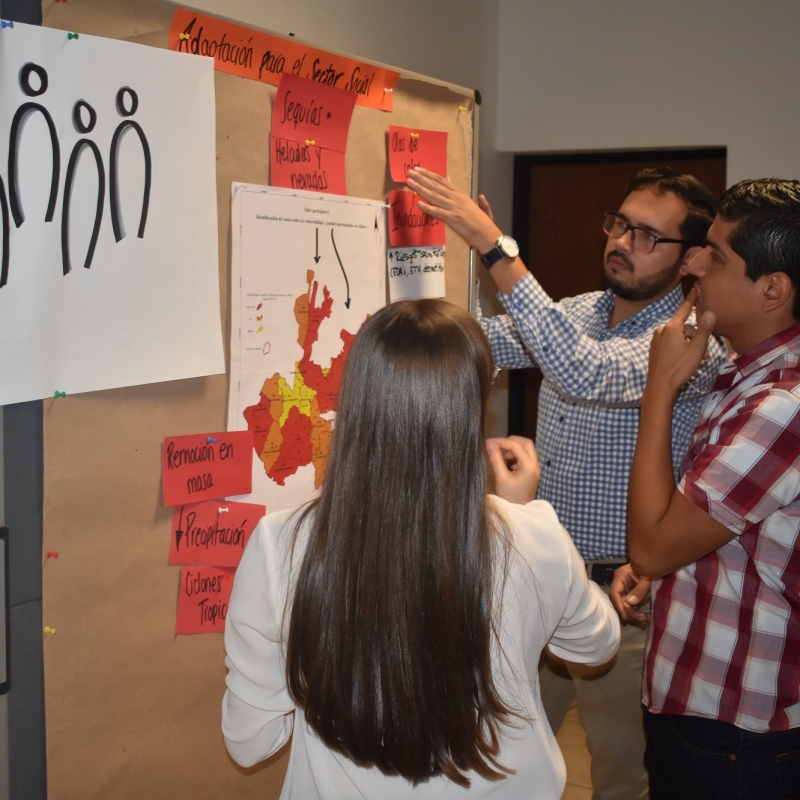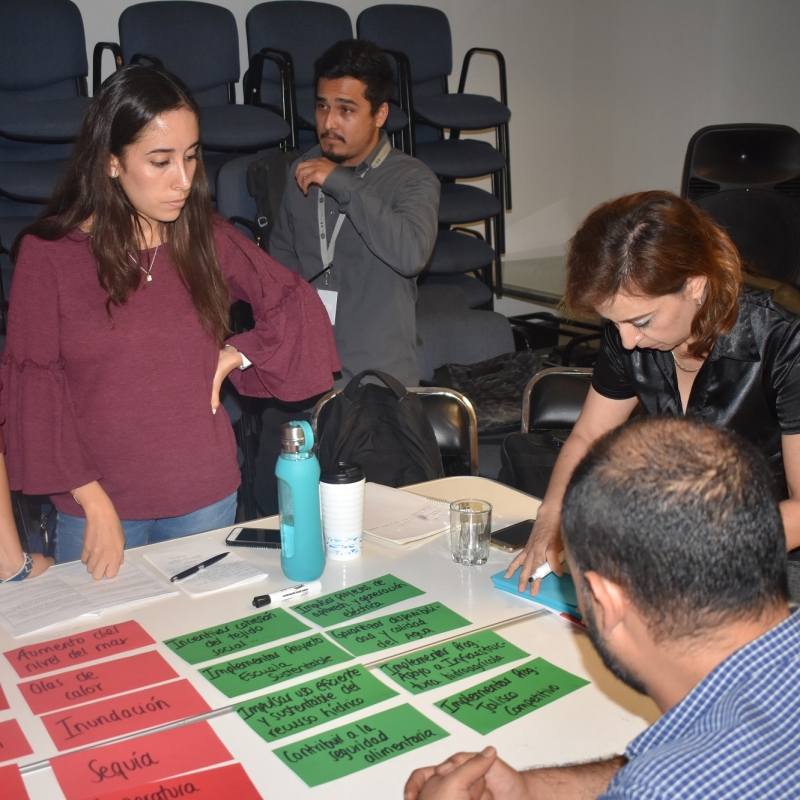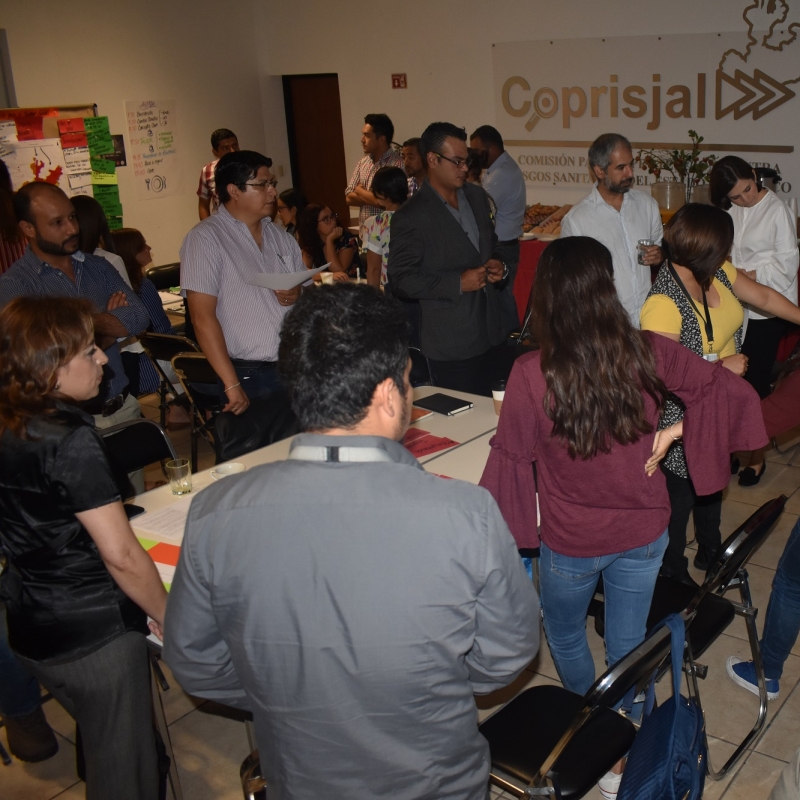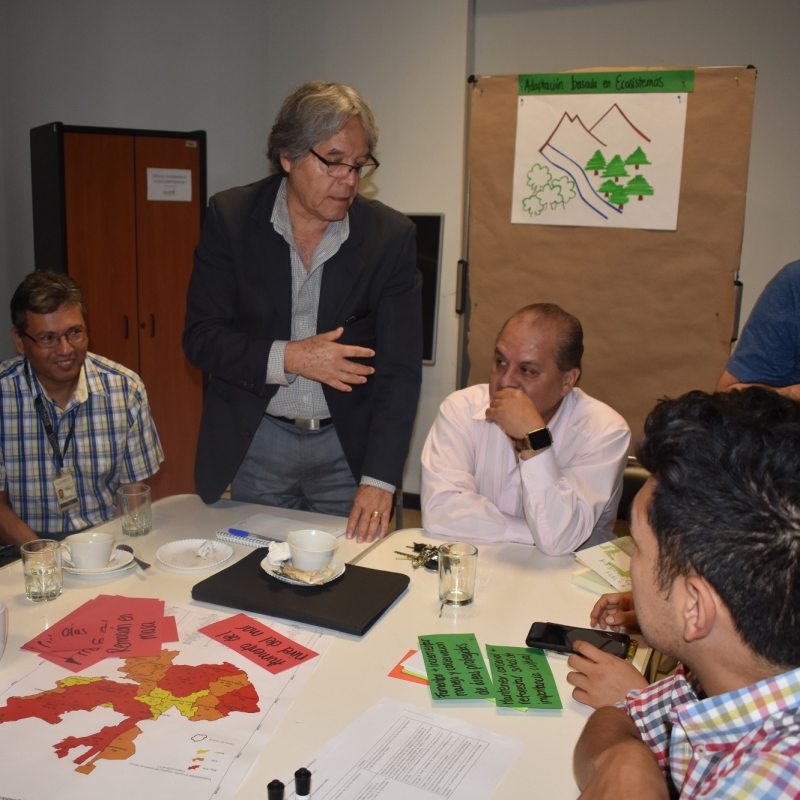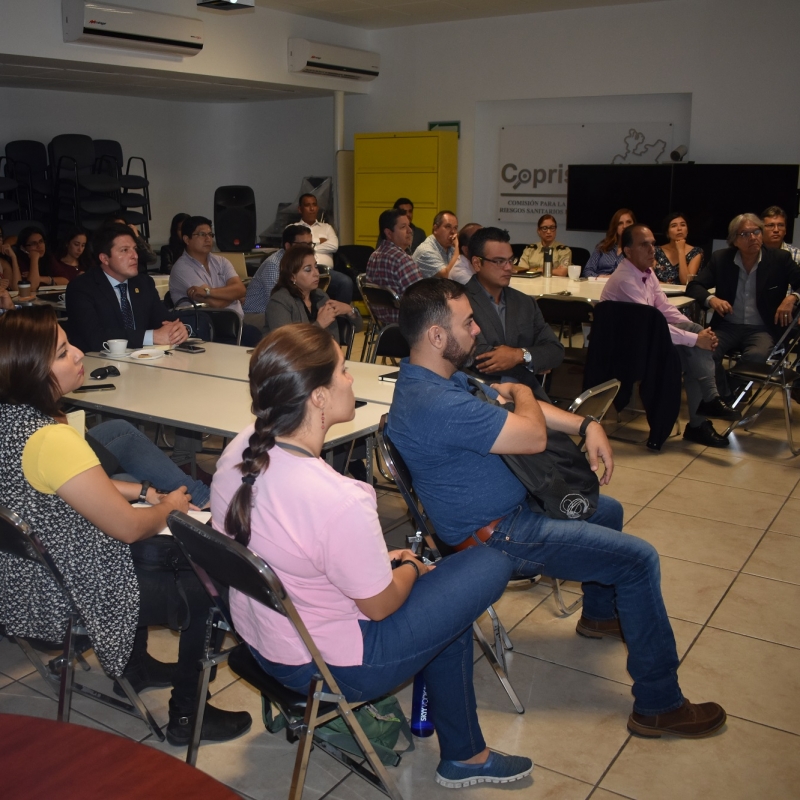Jalisco government representatives and nongovernmental actors meet in a start-up workshop to assess the vulnerability of the state and its regions to climate change and identify long-term priorities for climate adaptation.
States have a key role to play in achieving the commitments established in the Nationally Determined Contribution (NDC), as their actions will have a direct impact on how climate change affects state territories.
Why is it necessary to create the State Plan for Climate Change Adaptation in Jalisco?
This process is important for linking the existing instruments and highlighting the state’s contributions towards meeting the NDC. The first participatory workshop helped determine vulnerability gaps and potential opportunities for action in Jalisco. It aimed to identify actions that the state can take to meet goals related to climate change adaptation.
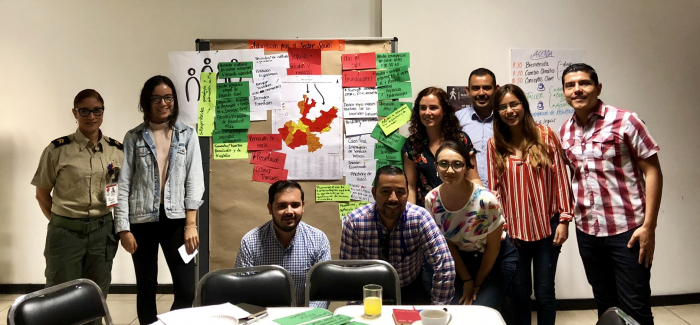
The workshop began with Camilo de la Garza, Climate Change Advisor of the Deutsche Gesellschaft für Internationale Zusammenarbeit (GIZ) GmbH and Arturo Javier Palero Castro, Project Coordinator of the Ministry of the Environment and Territorial Development (SEMADET) of Jalisco, offering words of welcome and highlighting the importance of state processes on climate change. As a starting point for the workshop discussions, they also introduced the international, national and state contexts regarding climate change. Another speaker, Sofía Muñoz Alarcón, employed the “Action Learning” methodology to explain key concepts such as vulnerability, adaptation and impact chains.
Following the presentations, participants were divided into three groups according to the NDC’s three adaptation axes: social sector climate change adaptation (Axis 1 NDC), Ecosystem-based Adaptation (Axis 2 NDC: EbA) and strategic infrastructure and productive systems adaptation (Axis 3 NDC).
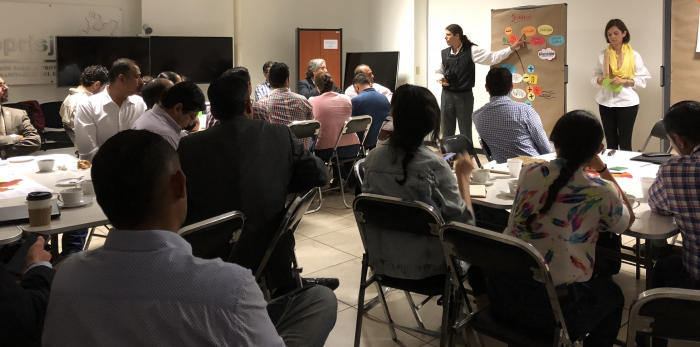
Teams developed climate impact chains for each state sector and territorial region, with the impact chains corresponding to one of the three adaptation axes. Using current climate policy instruments as a reference point for examining vulnerabilities to climate change, the working group discussions focused on identifying gaps and areas of opportunity. From these gaps, each team formulated concrete proposals to complement the existing climate tools and resources.
As an outcome of the workshop, it was agreed to integrate the elements identified in the working groups into future discussions and planning for Jalisco’s State Plan for Climate Change Adaptation.
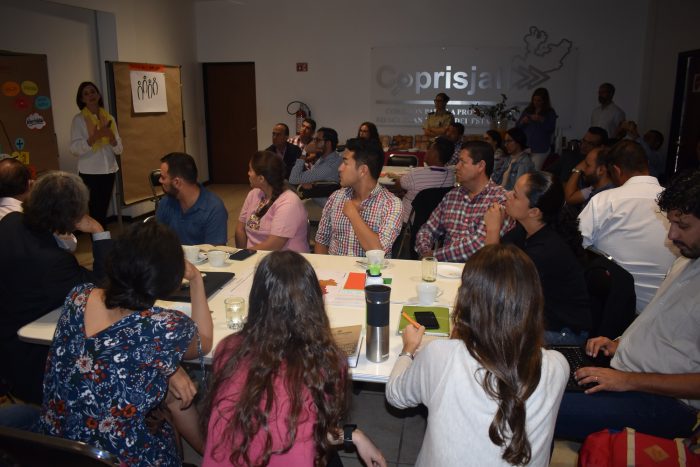
The first participatory workshop was held on September 24, 2018 in Guadalajara at the headquarters of the Commission for the Protection against Sanitary Risks in Jalisco (COPRISJAL) and brought together more than 30 people from different sectors. It was organized by GIZ in Mexico on behalf of Germany’s Federal Ministry for the Environment, Nature Conservation and Nuclear Safety (BMU), in cooperation with the Ministry of the Environment and Natural Resources (SEMARNAT) and SEMADET of the state of Jalisco.

